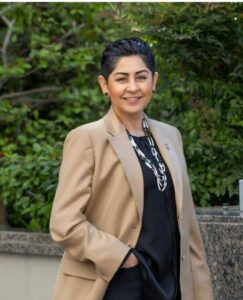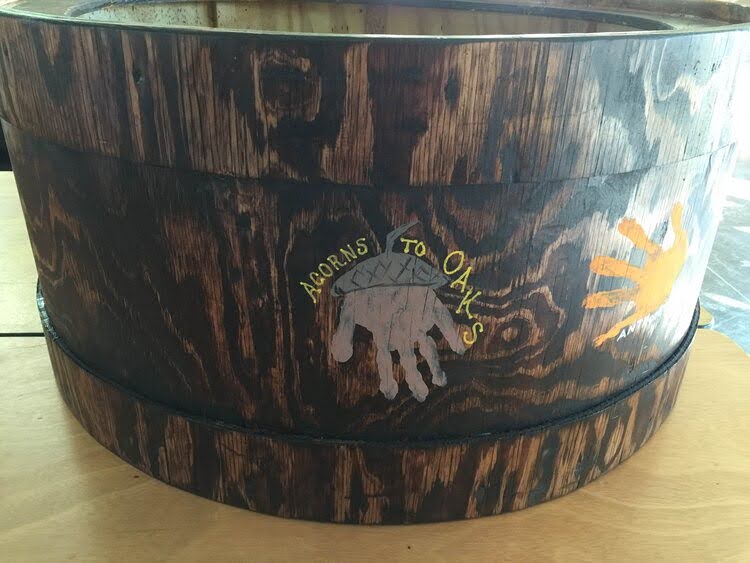Preparing for What Happens Before What Happens Happens By Jeff Wohler and Erica Pinto
In late 2022, the San Diego Harbor Police Foundation (SDHPF) began a meaningful collaboration with the Jamul Indian Village of California with one urgent goal: to increase awareness and education about the issue of human trafficking within the tribal community, particularly among youth and casino workers. What began as an effort focused on education has since grown into a broader partnership addressing multiple issues, including the crisis of Missing and Murdered Indigenous People (MMIP).
At first glance, these issues may seem separate, but they are closely intertwined. Human trafficking and MMIP both target vulnerable individuals—often youth—who lack support systems, protection, or opportunities for engagement. They reflect a deeper, systemic problem that requires more than law enforcement or policy changes alone. It requires cultural connection, community awareness, and early intervention.
For parents, especially, these are sobering truths. No one wants to imagine their child at risk. But the reality is this: prevention must start before the risk becomes real. As our title suggests, we must prepare for what happens before what happens happens.
Building Roots: Acorns to Oaks
One shining example of this proactive approach is Acorns to Oaks, a grassroots program developed by the Jamul Indian Village of California. This initiative, created by Tribal Chairwoman Erica Pinto and her brother, former Executive Council Member Chris Pinto, aims to guide youth away from destructive behaviors—such as drug use, alcohol, and teen pregnancy—while simultaneously grounding them in their heritage and cultural identity.
The name Acorns to Oaks is rich in symbolism. The acorn, small and full of potential, represents the Tribe’s youth—each child a seed capable of growing into a strong, deeply rooted oak tree. The program works not only to prevent risk behaviors but to cultivate pride, purpose, and cultural knowledge that serves as a foundation for lifelong resilience.
Beyond its preventive mission, Acorns to Oaks is a volunteer-driven group that works with local organizations to create opportunities for youth to engage with their community. The organization is also known for organizing cultural projects that reinforce identity and community cohesion.
Drumbeats and Identity
One of the program’s most powerful recent efforts has been a Native American drum-making project. While the Kumeyaay people of the Jamul Indian Village do not traditionally use drums in ceremonial practices, the broader Native American tradition regards the drum as sacred. It symbolizes the heartbeat of Mother Earth and serves as a conduit between the physical world and the spiritual.
“Our kids are excited to see the drum coming together,” said Executive Council Member Chris Pinto. “They’re taking immense pride in making something that honors our broader culture. It’s beautiful to see them work together, focused on a common goal, learning about craftsmanship and spirituality.”
The drum-making project is more than just an arts-and-crafts activity. It is a tangible expression of cultural heritage and a lesson in perseverance, patience, and pride. These are the very values that serve as a countermeasure to the risk factors many Native youth face.
Honoring the Past: All Souls Day
Every November 2, the Jamul Indian Village of California celebrates one of its most sacred traditions—All Souls Day. This is not a somber event, but a celebration of life, memory, and connection to the ancestors who came before. In preparation for the holiday, tribal members clean the reservation’s cemetery, trimming overgrown plants and adorning headstones with colorful paper flowers and candles.
For many of the Tribe’s younger members, these preparations have become a rite of passage, thanks in large part to Acorns to Oaks. The children, guided by elders and volunteers, spend multiple days throughout the year crafting hundreds of paper flowers to ensure every ancestor is honored.
“It’s like turning on a light for our ancestors,” explained Vice Chairman Kenny Mesa, referring to the candles placed on each grave. “It’s our way of telling them, ‘We remember you. You’re still with us.’”
Chairwoman Erica Pinto adds, “I’m proud of the hard work these kids have done. Through their hands, they’re carrying on traditions that have been passed down for generations. Our ancestors guide us, and it’s our responsibility to ensure these traditions live on.”
For parents reading this—whether you’re Native or not—the message is clear: When children are connected to something bigger than themselves, when they are taught to honor the past and respect the future, they are far less likely to fall into danger. They are more likely to become protectors of their peers, ambassadors of culture, and pillars of strength within their communities.
A Sustainable Future
Recognizing the value of programs like Acorns to Oaks, the San Diego Harbor Police Foundation stepped in to help secure grant funding through the Bureau of State and Community Corrections. These funds will ensure the program continues to thrive and expand in the coming years, offering more cultural projects, leadership opportunities, and mentorship for Tribal youth.
The collaboration between SDHPF and the Jamul Indian Village of California reflects a larger truth: partnerships between community organizations, law enforcement, and Indigenous leadership are essential to confronting crises like human trafficking and MMIP. But even more essential is the empowerment of youth—before the danger ever arrives.
This is the heart of prevention. It’s not just about stopping something bad from happening. It’s about giving kids the tools, the pride, and the knowledge to walk a different path. ❦
 About the Authors
About the Authors
Jeff has been a success-oriented professional with 40 years of progressively responsible management experience including 30 years at the Presidential and Chief Executive Officer level. Some of his areas of expertise include budget and financial planning, marketing analysis, risk assessment, and corporate team development. He has owned and/or operated multiple corporations, including a publicly traded company, in industries to include water remediation, export trading with offices in fourteen countries, and offshore shipping. Jeff has also acted as a consultant to a single multi-billionaire client for over thirty years. This engagement centers on solutions oriented problem solving for his clients diverse portfolio of companies. Early in his career Jeff was a special agent with the U.S. Treasury Department.
He has served on the boards of many nonprofits to include the YMCA of San Diego County, Bring Me A Book Foundation, Save the Children, Parelli Foundation, San Diego Humane Society and Palomar College Foundation. In addition to being a third degree black belt in karate he has been associated with horses for over fifty years in the areas of western competition, team penning, and western versatility.
 Erica M. Pinto currently serves as Chairwoman of the Jamul Indian Village of California, one of the 13 tribes of the Kumeyaay Nation who trace their roots back 12,000 years in San Diego County, California. Ms. Pinto has served on the Jamul Indian Village Tribal Council since 1997. In 2015 Ms. Pinto was the first woman elected Chairwoman of Jamul Indian Village and has lead JIV through significant economic progress. Ms. Pinto is committed to giving back to her community, to future generations of the Tribe and to non-gaming Tribes who continue to struggle. Her mother, Carlene A. Chamberlain continues to be her most influential role model and the driving force behind her strength.
Erica M. Pinto currently serves as Chairwoman of the Jamul Indian Village of California, one of the 13 tribes of the Kumeyaay Nation who trace their roots back 12,000 years in San Diego County, California. Ms. Pinto has served on the Jamul Indian Village Tribal Council since 1997. In 2015 Ms. Pinto was the first woman elected Chairwoman of Jamul Indian Village and has lead JIV through significant economic progress. Ms. Pinto is committed to giving back to her community, to future generations of the Tribe and to non-gaming Tribes who continue to struggle. Her mother, Carlene A. Chamberlain continues to be her most influential role model and the driving force behind her strength.
